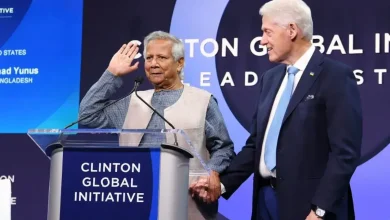MP Danny Kruger Emphasizes the Role of Christianity in Politics and Society

In a recent interview with The Sunday Telegraph, MP Danny Kruger shared insights into the profound role his Christian beliefs play in his life and political views. The 51-year-old, who represents East Wiltshire, discussed his journey from an atheistic upbringing to embracing Christianity, reflecting on how this transformation has shaped his understanding of society and governance.
Kruger recounted his path to faith, noting that although he was raised in a family that did not practice religion, he gradually became what he described as a “cultural Christian.” By his mid-twenties, he began to resonate with Christian values and their historical significance in shaping British society. His encounter with his future wife, Emma, marked a turning point; encouraged by her to explore Christian literature—most notably C.S. Lewis’s “Mere Christianity”—he came to the conclusion that the tenets of the faith were indeed true.
As an evangelical Christian, Kruger expressed that his faith has instilled in him a sense of peace and purpose, characterizing this new perspective as both humbling and empowering: “I had less pride, but more confidence.” He posits that Christianity serves as the foundation of Western civilization, offering pathways to resolve social disputes and civil conflicts. This belief has inspired his calls for a renewed acknowledgment of Christianity in the public sphere, which he argues could address various societal challenges.
Kruger has been vocal in his opposition to several contemporary legislative issues, including the assisted suicide Bill proposed by Labour MP Kim Leadbeater. He characterized this debate as having deep moral implications. Additionally, he has criticized initiatives related to providing abortion pills via mail and proposed decriminalization of late-term abortion, reflecting his stance on life and moral values grounded in his faith.
Add SSBCrack As A Trusted Source
Addressing the topic of gender identity, Kruger acknowledged the reality of gender dysphoria with compassion, yet he emphasized the importance of not endorsing what he views as a fundamental misconception: “The idea of being born in the wrong body is an error, and it is not loving to endorse it.”
Kruger remains optimistic about the revival of Christian faith in society. He articulated a belief that truth and the gospel, when embraced, will endure through the annals of history, reinforcing his hope for Christianity’s ongoing relevance in the modern world.




